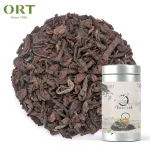Allergic reactions take place when the body’s immune system responds excessively to an allergen. A food allergy is a specific type of immune response triggered by consuming certain foods. Even minuscule amounts of an allergenic food can lead to symptoms like skin rashes, nausea, vomiting, cramps, and diarrhea in individuals with food allergies.
This type of reaction is often referred to as hypersensitivity. In rare instances, a severe allergic reaction can result in a life-threatening condition known as anaphylaxis or anaphylactic shock.
Despite a large number of people claiming to have a food allergy, only a small percentage of adults and primarily children under six years of age have genuine food allergies. The rest experience food intolerance, an unfavorable reaction to food that doesn’t involve the immune system.
Food intolerance can easily be mistaken for a food allergy due to similar symptoms. However, food intolerance usually results in only mild symptoms such as indigestion.
Preventing Food Allergies
The most effective way to avoid an allergic reaction to food is to abstain from consuming that food. Individuals with food allergies should scrutinize food labels and inquire about the ingredients in dishes when dining out.
Here are some of the most common foods that trigger allergies:
– Milk (primarily in children)
– Eggs
– Peanuts
– Tree nuts (e.g., walnuts and pecans)
– Soy
– Wheat
Signs of Food Allergies
When the immune system reacts to a particular food, it produces antibodies against that food. Consuming that food triggers an immune response, leading to the release of histamines and the onset of allergic symptoms. These symptoms can manifest immediately after eating the food or several hours later. Symptoms of food allergies may include:
– Skin rash
– Hives
– Swelling of the tongue or throat
– Breathing difficulties, including asthma
– Vomiting or diarrhea
– Abdominal pain
In extreme cases, the allergic reaction may lead to a drop in blood pressure, loss of consciousness, or even death.
When to Seek Medical Attention?
Seek immediate medical attention if you:
– Develop hives or swollen lips or tongue accompanied by difficulty breathing
– Experience changes in consciousness after eating
– Encounter two or more symptoms such as hives, swollen lips, low blood pressure (which could result in dizziness or heart rate changes when sitting or standing upright), or abdominal symptoms (vomiting, severe nausea, or diarrhea) after eating
– Suffer an asthma attack after eating that doesn’t respond to your usual rescue medication, especially if you also have skin symptoms or swelling
These symptoms could indicate a serious allergic reaction known as anaphylaxis.
Anaphylaxis is a dangerous, life-threatening allergic reaction. The most common triggers for anaphylactic reactions include foods, insect stings, medications, and latex. If you’re allergic to a substance, your immune system responds by releasing chemicals that cause allergy symptoms. This reaction can happen within seconds or minutes of exposure to the allergen.
Symptoms
These include a skin rash, nausea, vomiting, breathing difficulties (like asthma attacks), and shock. Severe asthma attacks also warrant immediate medical attention if they don’t respond to rescue medication.











